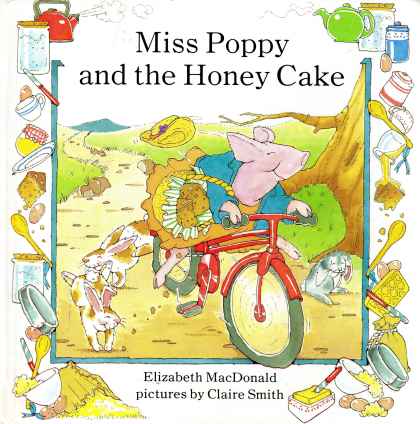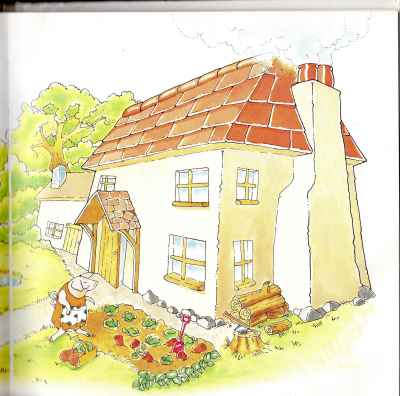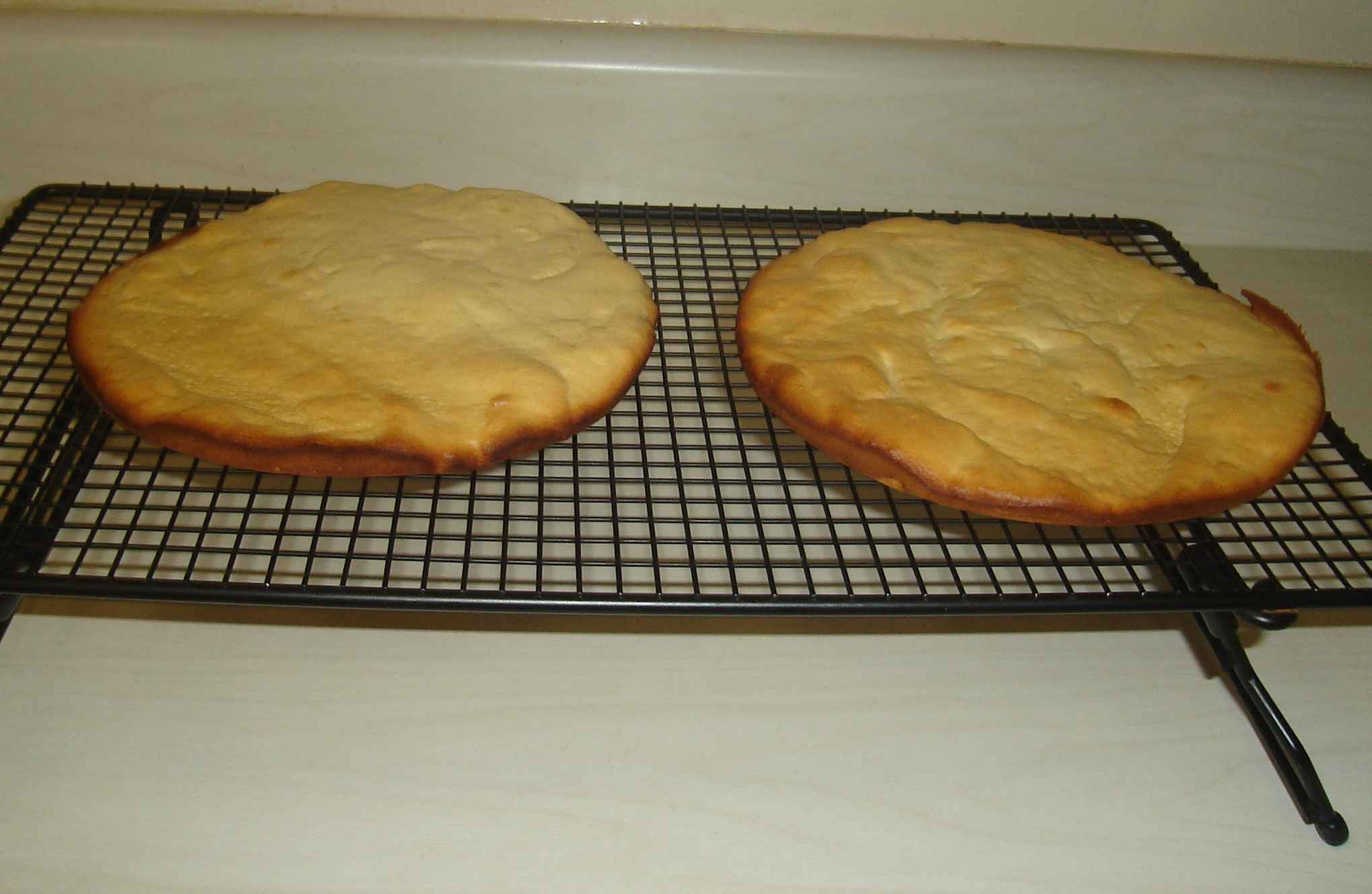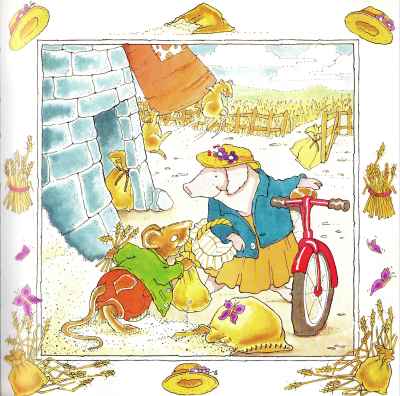As some of you might know, from time to time I like to try my hand at reading books to the children, who come up with some strange assortment of new books that I don’t recognize due to birthdays, Christmas, other gifting events, book fairs, and garage sales where they follow in their father’s footsteps and acquire a bunch of them.
So somehow this book turned up, this Miss Poppy and the Honey Cake.

It’s a little book about a little English mouse who bakes a honey cake and encounters all sorts of travails as she does so, the travails of which include not having specific ingredients and having to borrow them from neighbors, each of whom says that she’ll need something that no one else has. The titter-worthy, if you’re British, joke is that she ultimately needs salt and can’t think of anyone else to borrow it from but, fortunately, she has some! Then they all eat honey cake.
Inside the endpapers of the book, the actual recipe for honey cake appears, and it is a simple little recipe made from things we have around the house. So I thought I’d give it a try, since although I’m no fictional English mouse, I do try my hand at baking from time-to-time. Are the results worthy of a children’s book? I’ll leave that for you to decide.
For starters, let’s clear one thing up: It’s not only television that gives children unrealistic expectations of prosperity, but also children’s books. Miss Poppy lives in a cottage, the facing page says, but here’s the illustration of her “cottage”:

Is Miss Poppy a member of Parliament or what? That’s a two-story “cottage” with several thousand feet of living space at minimum. I’ll leave it to you whether to wonder if that second door to the left is a large outbuilding–a shed the size of a real cottage–or another door to the north wing of the house.
But I digress.
So I took out the ingredients listed in the book: honey, butter, salt, flour, eggs, and milk, basically. I doubled the recipe so we’d have a test cake and a cake to serve to friends with dinner if it all worked out. I mixed them together in my own fashion (which means fold, cream, mix, and stir all mean the same thing: set the hand-held blender on 3).
I even forewent the glass bakeware I usually use because this project calls for baking tins which is the primitive equivalent still used in England. My beautiful wife mentioned that we had some, and I knew exactly where: in the garage, in a box on a shelf and clearly marked by a label indicating its contents, the result of a thorough garage cleaning this year. Unfortunately, the neatly marked items are on shelves hidden by a thicket of new things placed haphazardly in the garage and old things taken from their shelves neatly and left on the floor, on new things, or on other old things whose shelf locations were not as convenient as the floor. After dodging bins of sports equipment left on the floor or saw horses, boxes from 2012’s recent purchases or Amazon shipments (sometimes both), and the relocation of a ladder and/or a metal detector, I easily secured the tins, washed them, and prepped them with baking spray.
I put the cake mixture in them and baked them for 30 minutes.
The result:

Those are not honey cakes. Those are, at best, honey cookies. Or houney cookies, given their origin in a British book.
What went wrong? Well, apparently, the recipe calls for self-rising flour, and the flour we had on hand was a less motivated variety. I sort of skipped the adjective when reading the recipe the first time.
Though, in my defense, in the text of the book, Miss Poppy does not get self-rising flour. When she goes to Mr. Rat’s mill for flour, he grinds her some fresh flour from corn:

Who would have thought a rat from the UK would have access to better flour than an American?
As I mentioned, at the end, they all eat the honey cake. “They” means, of course, a panoply of animals. So my honey cookies meet the quality standards of the honey cakes in the books: they’re definitely fit for consumption by animals.
Actually, they were pretty good, even flat. So I’ve got some self-rising flour now and I’ll try again.
But this might be the last recipe I get from a children’s book. Unless I get hungry for some soup.


